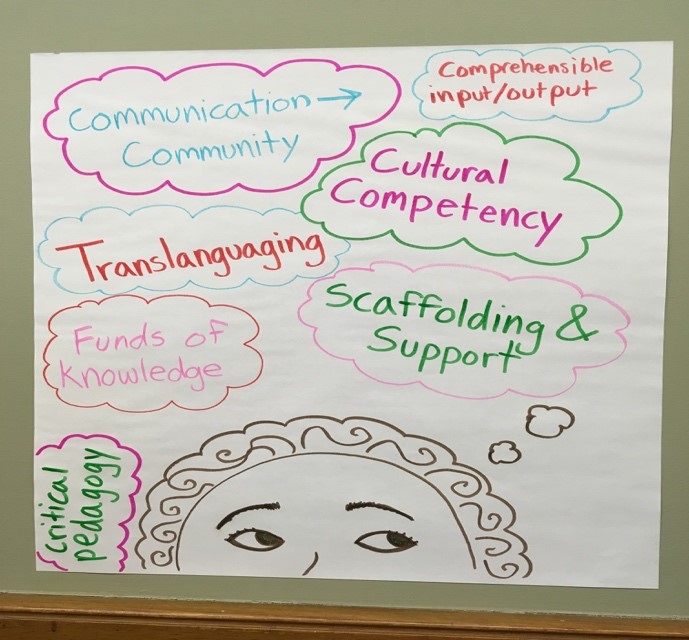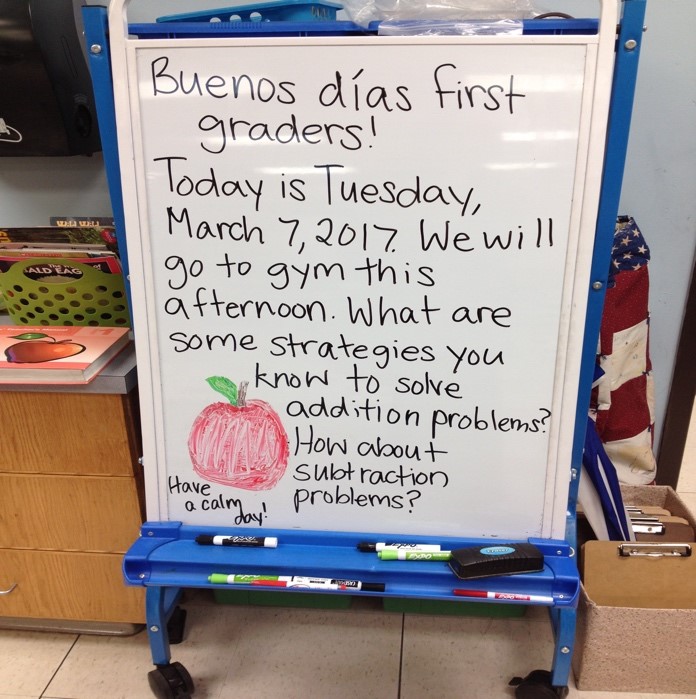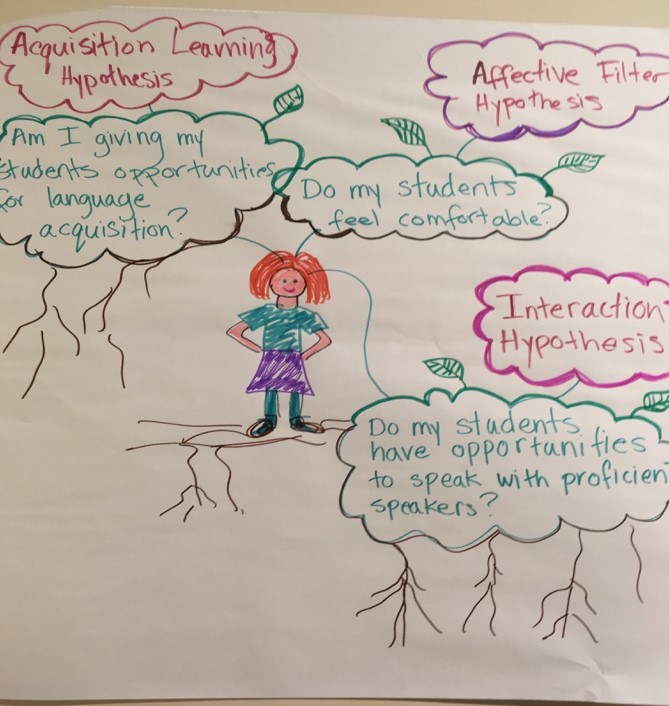How do we build and reflect the sociocultural knowledge found inside our urban school classrooms?
This projects brings together university educators, pre-service teachers, and public-school community members to develop a collective critical pedagogy of sociocultural recognition and engagement. This inquiry work is centered at the intersections of pedagogy, sociocultural geographies, language histories, student-centered curriculum, and collaborations.
Contact: Dr. Carmen Ocón.



How can an undergraduate major support the development of activist frameworks and stances?
The interdisciplinary Community Youth and Education Studies (CYES) major allows undergraduate students to engage in activist scholarship. CYES as a Community of Praxis is an initiative aimed at researching the major itself, and inquiring into different design elements of the major.
Contacts: Eric DeMeulenaere, Jie Park, and Sarah Michaels
How can visual data make visible the powerful cultural capitals of others?
This thread of work spans multiple projects and theories, looking at how youth-produced photographs can provide counter-narratives of communities and neighborhoods, as well as theorizing on how images can visualize social phenomena, telling powerful stories that can traverse frameworks, languages and modalities.
Contact: Nastasia Lawton-Sticklor
How do recent-arrival immigrant experience and navigate high school? What can we learn from youth about educating recent-arrival immigrants?
Supported by a Spencer/National Academy of Education Postdoctoral fellowship, this project involved shadowing seven recent-arrival immigrant youth at Claremont Academy. The research focused the relationship between the resources that immigrant youth bring with them into the classroom.
Contact: Jie Park
What happens when educators get together to talk about books?
The book study group is a relaxed space for educators to learn from and with each other as they discuss texts that they have chosen to read. Teacher participants represent a range of grade levels and content areas. It is not uncommon for first grade teachers, high school math teachers and Master’s level teacher educators to share ideas, pose questions and problem solve with each other as the group grapples with a range of topics connected to their work in the classroom. Participants choose the texts to read and determine the focus of the group discussions as they reflect on their instructional practice. The goal of this project is to support teachers in their ongoing professional development as well as to continually engage members of the Clark University/Worcester Public Schools clinical partnership in developing their instructional practice and in staying informed on current trends in education.
Contact: Holly Dolan
What types of experiences and practices support the development of an inquiry stance among pre-service teachers? How can university classrooms provide a space for teacher research?
This collaborative teacher research investigation centers on two university academics creating experiences and practices that support cultivation of an inquiry stance among pre-service teachers. The work examines the development of emotionally-connected spaces facilitating pre-service teachers in building culturally sustaining and anti-racist learning and teaching practices.
Contacts: Nastasia Lawton-Sticklor and Kate Bielaczyc
The Next Generation Science Exemplar (NGSX) System is an innovative program of professional learning for K-12 science teachers and instructional leaders (principals, coaches, and district science specialists), designed to support teachers in reimagining science teaching and learning for all of their students. Through on-going research and development, NGSX continues to expand its learning pathways (combining face-to-face study groups and web-enabled resources). Since its launch in 2013, NGSX has been used by over 9,000 science educators across 18 states in the U.S.
Contact: Sarah Michaels
What role can graphic novels play in improving literacy and content understanding in urban secondary level humanities classes?
This research explores the various ways that several middle and high school English and History teachers have used graphic novels in their classes to improve student learning and understanding.
Contact: Raphael E. Rogers
How can contemporary picture books about slavery help students to understand the complex nature and historiography of the institution?
This research explores the role that contemporary picture books about slavery can play engaging students in the study of the historiography and legacy of the institution in the United States.
Contact: Raphael E. Rogers
What does it mean to become a member of a classroom knowledge building community? What can we learn from learner and teacher perspectives on this computer-supported collaborative model of education?
The Knowledge Building Community model is meant to parallel modern research collectives: participants develop the epistemic agency to identify problems of understanding, create theories, carry out research and investigations in order to progressively improve their work over time, revise their problems and strategies, and share and monitor the progress of the community toward its goals. This research explores how students and teachers view the shift to becoming a classroom knowledge building community, and the practices they find important in making the transition.
Contact: Kate Bielaczyc
How can citizen scientists use an online community environment to deepen and expand their learning? As part of a collaboration with researchers from the Cornell Lab of Ornithology, this project examined how to foster learning in a networked community of citizen scientists and support the creation of a community of learners deepening their understanding of how to make environmentally-friendly choices in their lives.
Contact: Kate Bielaczyc
How do pre-service teachers come to understand and enact powerful and culturally-relevant pedagogical practices?
As part of UTEC, a consortium of teacher educators across the nation, teacher educators are investigating ways of supporting pre-service teachers to develop the identities, knowledge and practices necessary to become effective urban educators.
Contacts: Kate Bielaczyc, Nastasia Lawton-Sticklor, Jie Park, and Thomas Del Prete.
How can fostering spaces for students to reflect on learning help to create powerful pedagogy?
As part of the Hiatt Center’s partnership with Claremont Academy, this project created space and structure for students to talk about learning, both in context of their general feelings on what constitutes powerful and non-powerful learning, and their personal identities as learners in school.
Contacts: Nastasia Lawton-Sticklor and Jie Park
